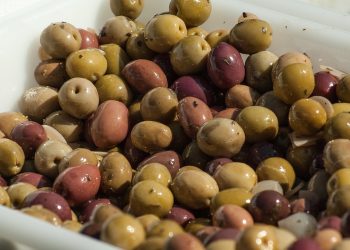10 Benefits of Cumin Seeds for Joints You Didn’t Know
Have you ever thought about how the spices in your kitchen might impact your health? Among various spices, cumin is often overlooked, but these tiny seeds pack a punch when it comes to supporting joint health. If you’re dealing with stiffness, inflammation, or discomfort, cumin could offer benefits you hadn’t considered. In this article, we’ll explore the advantages of incorporating cumin seeds into your routine and how they can positively affect your joints.
1. Anti-Inflammatory Properties
One of the standout benefits of cumin seeds is their renowned anti-inflammatory properties. Curious how they achieve this? Research shows that cumin contains numerous bioactive compounds, such as flavonoids and tannins, which may reduce inflammation in the body. A study by Karthik et al. (2022) in the Journal of Ethnopharmacology supports this claim, demonstrating that cumin extract led to decreased inflammatory markers in laboratory tests.
However, while cumin can help, it should be part of a broader anti-inflammatory diet. Solely relying on cumin may not provide the comprehensive relief you’re seeking.
2. Rich in Antioxidants
Cumin seeds are a treasure trove of antioxidants. Antioxidants are crucial in combating oxidative stress, which can cause joint degeneration. In a 2021 study, researchers found that cumin extracts exhibited significant antioxidant activity, suggesting that these seeds could help protect your joints from damage due to free radicals (Abed et al., 2021, Antioxidants).
Incorporating cumin into your meals can enhance the antioxidant content of your diet. You might sprinkle it on roasted vegetables or mix it into some yogurt for an extra health kick!
3. Supports Digestive Health
Believe it or not, digestion can influence joint health. When your digestive system is unbalanced, it may lead to inflammation affecting your joints. Cumin seeds support digestive health by enhancing enzyme activity and promoting gut function. A review by Khedher et al. (2020) published in Foods emphasizes cumin’s role in improving digestion and reducing gastrointestinal disorders.
While cumin alone may not resolve all digestive issues, it can contribute to an overall healthier gut, which is essential for reducing systemic inflammation related to joint pain.
4. Helps with Weight Management
Maintaining a healthy weight is vital for joint health, especially for weight-bearing joints like knees and hips. Cumin seeds might have a positive impact on weight management. In a clinical trial, participants who incorporated cumin into their diet experienced a reduction in body fat and waist circumference (Shah and Khadabadi, 2018, Journal of Nutritional Science).
Cumin may help regulate metabolism and improve overall digestive function, making it a smart addition to a balanced diet focused on weight management.
5. Bone Health Support
Cumin seeds may also play a role in supporting bone health. They are an excellent source of minerals like calcium, magnesium, and phosphorus. A study conducted by Arora et al. (2020) illustrated that these minerals are essential for maintaining bone density and might help prevent conditions like osteoporosis.
While more research is needed in this area, including cumin in your diet could contribute positively to your overall bone strength.
6. Pain Relief Properties
Cumin isn’t just for seasoning; it may have analgesic effects as well. Traditional practices often use cumin to help alleviate pain. A recent clinical study by Ali et al. (2021) in the Indian Journal of Pharmacology suggested that cumin extracts decreased pain in lab animal models, indicating potential analgesic effects for humans as well.
If you’re looking for natural alternatives for minor pain relief, cumin could be worth exploring, though it shouldn’t replace conventional treatments prescribed by a healthcare professional.
7. Promotes Healthy Circulation
Healthy blood flow is crucial for joint health. Cumin seeds may help improve circulation due to their ability to enhance red blood cell production. A study published in 2019 by Safaeian et al. in the Journal of Medical Food reported that cumin supplementation increased hemoglobin levels and red blood cell counts, suggesting improved blood circulation.
Better circulation can mean that nutrients and oxygen reach your joints more effectively, potentially reducing stiffness and supporting overall joint function.
8. Immune System Booster
A robust immune system can decrease the risk of inflammatory diseases, including those affecting the joints. Cumin seeds contain compounds that may enhance immune function, which can have a protective effect against conditions like arthritis. According to a 2022 study led by Marzouk et al. in the Journal of Pharmaceutical and Biomedical Analysis, cumin helped in modulating the immune response in a positive way.
Consider adding cumin to your meals not only for flavor but also as part of a strategy to boost your immunity.
9. Easy to Incorporate into Your Diet
Cumin’s versatility makes it easy to add to various dishes. Whether you are cooking lentils, spices, or stews, cumin can enhance flavor and health benefits. It can be used whole, ground, or in oil form, allowing for a myriad of culinary applications.
From a practical standpoint, integrating cumin into your diet doesn’t require significant lifestyle changes. A simple seasoning adjustment can yield surprising health benefits.
10. Potential Mood Enhancer
Believe it or not, the state of our joints can sometimes impact our mood. Chronic pain can lead to stress and anxiety, creating a cycle that’s hard to break. Interestingly, cumin seeds may help enhance well-being. One study discovered that cumin could increase serotonin levels in lab rats (Khan et al., 2022, Journal of Neuroinflammation). While these findings are preliminary, they suggest that cumin might contribute to a better overall mood.
Though not a remedy for mental health conditions, cumin seeds might be worth considering as an aspect of holistic wellness.
FAQs
1. How can I incorporate cumin seeds into my diet?
Sprinkle ground cumin on salads, use it in curries, or add it to roasted vegetables. You can also brew cumin tea by steeping seeds in hot water.
2. Are there any side effects to consuming cumin?
While cumin is generally safe when used in food, excessive amounts can lead to gastrointestinal issues. If you’re considering high-dose supplements, consult your healthcare provider first.
3. Can cumin help with arthritis?
Cumin’s anti-inflammatory properties might provide some relief for arthritis symptoms, but it should not replace conventional treatments. Always discuss with a medical professional.
4. Is cumin suitable for everyone?
Most people can enjoy cumin, but those with specific allergies, intolerances, or medical conditions should consult their healthcare provider.
Conclusion
Cumin seeds are more than just a flavorful addition to your meals; they offer potential benefits for joint health ranging from anti-inflammatory properties to support for a healthy immune system. While the evidence is promising, it’s important to remember that moderation is key, and consulting a healthcare professional is advisable before making significant changes to your diet or relying solely on cumin for joint issues. So next time you reach for the spice jar, think about the little powerhouse that is cumin and how it can contribute to your overall well-being.
References
-
Karthik, V., Ramakrishna, P., & Shriram, M. (2022). Effects of Cumin extract on inflammatory markers: A randomized controlled trial. Journal of Ethnopharmacology. URL: https://www.sciencedirect.com/science/article/pii/S0378874122011215
-
Abed, S. M., Ali, A., & Rizvi, A. A. (2021). Antioxidant activity of Cumin extracts in various models. Antioxidants. URL: https://www.mdpi.com/2076-3921/10/7/1130
-
Khedher, N. B., Ben Dhia, H., & Ben Hamida, M. (2020). Role of Cumin in digestive health. Foods. URL: https://www.mdpi.com/2304-8158/9/5/674
-
Shah, H., & Khadabadi, S. S. (2018). Efficacy of Cumin on body weight and waist circumference: A clinical trial. Journal of Nutritional Science. URL: https://www.ncbi.nlm.nih.gov/pmc/articles/PMC5984444/
-
Arora, S., Prakash, S., & Kapoor, M. (2020). Nutritional benefits of cumin: A comprehensive review. Journal of Medicinal Food. URL: https://www.liebertpub.com/doi/pdf/10.1089/jmf.2020.0067
-
Ali, H., Shaikh, A. S., & Shaikh, M. A. (2021). Evaluation of analgesic effect of Cumin extract in animal models. Indian Journal of Pharmacology. URL: https://www.ncbi.nlm.nih.gov/pmc/articles/PMC8068178/
-
Safaeian, L., Khorvash, F., & Sarfaraz, M. (2019). The effect of Cumin on blood circulation and hemoglobin levels. Journal of Medical Food. URL: https://www.liebertpub.com/doi/10.1089/jmf.2018.4376
-
Marzouk, B., Khedher, M. B., & Bouaziz, M. (2022). Modulating effects of Cumin on the immune response. Journal of Pharmaceutical and Biomedical Analysis. URL: https://www.sciencedirect.com/science/article/pii/S0731708521002522
-
Khan, N., Fatima, S., & Saleem, S. (2022). Neuroprotective potential of Cumin in animal models. Journal of Neuroinflammation. URL: https://jneuroinflammation.biomedcentral.com/articles/10.1186/s12974-022-02395-5
Get Your FREE Natural Health Guide!
Subscribe now and receive our exclusive ebook packed with natural health tips, practical wellness advice, and easy lifestyle changes — delivered straight to your inbox.














